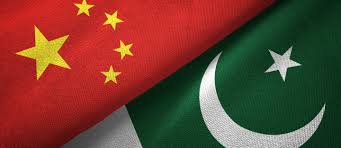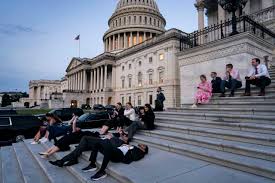Pakistan launches first coronavirus vaccine made with China’s help

China Economic Net
Islamabad: Pakistan has launched its first coronavirus vaccine made with the help of experts from Iron Brother China.
Prime Minister Imran Khan’s special assistant on health Dr Faisal Sultan said Pakistan had produced first 120,000 doses of “PakVac”. It is a single-dose vaccine, he added.
The packaging and formulation of the vaccine was conducted at the National Institute of Health (NIH).
The launching ceremony was held in Islamabad which was attended by National Command and Operation Center (NCOC) chief Asad Umar, who is also the Federal Planning Minister.
PakVac was made using the formula of China’s CanSino vaccine. Pakistan will produce another 900,000 doses of the vaccine in the second phase.
NCOC chief Asad Umar described it as a huge success for the country. He said he was proud of the National Institute of Health for making it happen.
Asad Umar said the first locally processed coronavirus vaccine in Pakistan was nothing short of a revolution, adding that while vaccines were in high demand all over the world, the Chinese-produced ones were ‘the most preferred’ in Pakistan.
The PakVac vaccine has been developed by China’s state-run pharmaceutical company Cansino and is being brought to Pakistan in a concentrated form, where it is packaged at the National Institute of Health (NIH) in Islamabad. Cansino was the first Chinese vaccine to have undergone clinical trial in Pakistan and was administered to around 18,000 people.
The company’s interim efficacy results of a multi-country trial, which included Pakistan, showed the vaccine had a 65.7 per cent efficacy in preventing symptomatic coronavirus cases and a 90.98pc success rate in stopping severe infections.
In the Pakistani subset, the efficacy of the vaccine at preventing symptomatic cases stood at 74.8pc and 100pc at preventing severe disease.
Umar said that Pakistanis actually preferred the Chinese-manufactured vaccines over those manufactured in Western countries, adding that people actually asked for the Chinese vaccines to be administered to them when they came to vaccination centres. “We also need to promote PakVac as it is produced by us,” he said. “This is a revolution.”
He congratulated the health teams in Pakistan, along with their Chinese partners who assisted in setting up the vaccine packaging process.
Expressing his gratitude to the Chinese authorities, the federal minister said that “we also take inspiration from China and our prime minister also gives their example again and again. It is heartwarming the way China has supported us, as always.”
Earlier speaking at the ceremony, Special Assistant to the Prime Minister (SAPM) on Health Dr Faisal Sultan stressed the need for developing a centralised health data centre, adding that though health is a devolved subject, some decisions needed collective consent.
“We have seen the NCOC take some key decisions and all the provinces were taken into the loop before proceeding further.”
The PM’s assistant, in a tweet, also congratulated the NIH team on the development, saying “this is a milestone in the journey to achieve self-reliance.”





